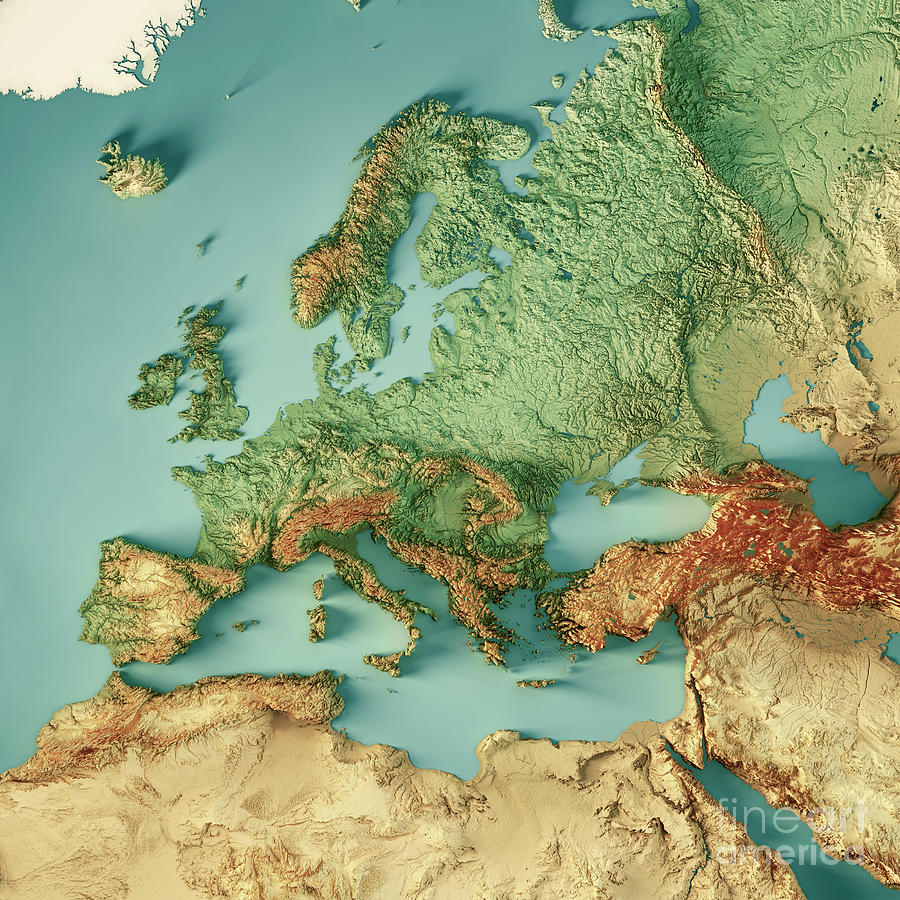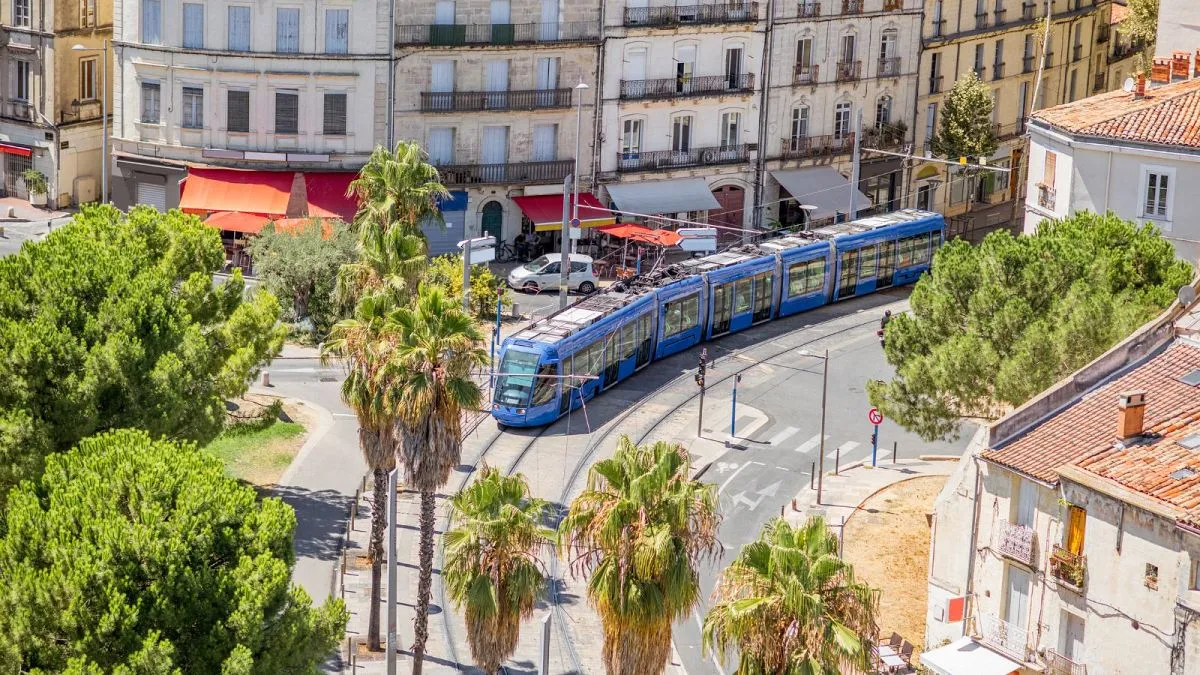ItS Not FreE, YoU StIlL HaVe tO pAy fOR iT sOmeHOw.
Yeah no shit, that’s exactly what taxes are for. Providing services to the masses, not giving handouts to the richest.
I wonder who do they think that pays for car infrastructure (gas stations, roads, road patches, gas subsidies, etc.)
Gas Stations pay for themselves. Otherwise its also tax based.
Still completely free public transport is not a good idea instead of investing in a high quality offering. (Higher Frequencies, Better Vehicles, more dense network). Because People usually take the car because it is more convenient, its always more expensive than public transport.
And in the past, free offerings have just diminished people walking or taking the bicycle, but no shift Car>Public Transit
It’s not more convenient. It’s only more convenient if the infrastructure isn’t there. Dodger stadium is a classic. It’s the stadium with 12 stadiums worth of parking lot around it. Some stadiums in Europe have 3-4x the capacity of dodger stadium and no parking. That’s because it’s convenient to get there by public transport. The US specifically makes zoning laws so people need cars from the isolate suburb to the yuge department store.
Even gas stations don’t pay for themselves. Gas would not be “profitable” or affordable for anyone if our governments didn’t spend billions subsidizing it.
That’s because it’s convenient to get there by public transport
That was my Point, people who drive right now don’t use Public Transport because it isn’t convenient for them.
Instead of burning funds to make it free for People who are perfectly capable of paying 300€/Month for their Car, you should use it to expand the Networks (New Train/Tram/Bus Routes) and augment their quality (Longer Operating hours/ Higher Service Frequency) and let them participate a Bit in the Costs, so you can improve the Network even further. (If they we’re able to pay 300€/Month for their Car, they can certainly pay 50-100€ for a monthly subscription too)
You misunderstand the billions a year it takes to keep the public roads functional, it’s not burning funds when it’s your money. This whole free market spin of “participating a bit” you’re trying to put on this makes no sense at all. That’s called taxes.
Public transport is underfunded and blocked by the car lobby, so it’s too expensive for what it is. Cars aren’t that expensive because theyre already heavily subsidized (and you ignore all the money that goes to maintaining it). Your math doesn’t add up in the real world if you take the true costs of cars, and it adds up even less if countries didn’t specifically design stuff for cars.
We shouldn’t build entire cities based on the few who can afford to waste money on a car, and make travel extremely difficult for everyone who can’t, even if public transport was a poverty thing. (it’s not)
Your point is valid, if not well presented ; doesn’t deserve the downvotes imho!
Making public transit free instead of making it better, and then use the fact that nobody uses it anyway to demantle it further, is a bad thing. I think Not Just Bikes touched on that in one of its videos.
But it’s not always the case that free = bad. If it’s already efficient and continues to improve, it can accelerate the growth of public transit. Luxembourg city is one example I know where it seems to be working, and a “good faith” effort.
I’m not so sure about gas stations. It seems the government too often has to step in to fund remediation of the soil and safe disposal of the underground fuel tanks when they close. The gas stations never want to pay for the inevitable cleanup in advance because it would be too expensive.
Old stations that is true but new stations have complex systems of tank within tankes to ensure leaks are contained and the stations pay for that.
Spain’s Renfe (Nat’l rail company) has for the past few years offered a free quarterly pass for the short distance lines that has a 20€ deposit. This deposit is returned if you have made a minimum of 4 trips a month. This means that you are incentivized to use the trains.
Oh, so there is one thing it doesn’t help with (do you have a source on that? In Europe plz) according to you, so it’s all bad.
Typical propagandist angle.
You mean Like in Tallin, Estonia?
https://news.err.ee/1608136915/audit-report-free-county-public-transport-has-not-fulfilled-goals
Or with the 9€ Ticket in Germany?
The Countries with a high Share of Public Transport in the Modal Split like Switzerland have one Thing in Common, an extremely dense, Frequent and reliable public Transport System. The price isn’t Just that important,
Just because someone has a different opinion than you, doesn’t make it “Propagandist”.
(I travel exclusively by Public Transport and I would love to have the Same quality as in Switzerland, but here everyone wants stupid cOmPeTiTiOn and lOw pRiCe Bro, and the quality in Germany is horrible. Montpellier is also not great, I’ve visited many Times for Holidays, and during the day it’s okay, but the Tram Service terminates way to early in the evening. The prices were also already very cheap before it went “free”)
Or with the 9€ Ticket in Germany?
Well, of course a ticket, that was limited to three months did not have a lasting effect on car usage. No one would sell their car and switch to public transport because of such a short, temporary price reduction. Even the follow up ticket (costing 49€ currently) is only guaranteed for a year at a time, then the government has to discuss funding again with the federal states. To have people switch from cars completely, it has to be a long term alternative.
But even if only some trips are now done with public transport instead of car, it is still an improvement.
I agree with you, that a good quality is also important, but I don’t think it will happen, if the financing for improving the quality has to be primarily via ticket pricing.
Dude, in the first link straight away:
has not reached its goal to reduce car journeys,
That does not mean it didn’t reduce them.
You even sounds more like a propagandist with your :
Just because someone has a different opinion than you, doesn’t make it “Propagandist”.
Lol get your facts right, then we can discuss.
Then you say the tram in Montpellier isn’t good, like what on earth does that have to do with anything? And FYI I actually lived there for around 6 years, and yes the tram was slow and doesn’t work well when it rains, but that was the case before it became free . Your point?
You are just word-salading to hide that you are wrong lol.
That does not mean it didn’t reduce them.
Yes that’s explicitly what they meant. Most new passengers were people who were Walking or cycling before, but not a Lot of people who were driving before
Then you say the tram in Montpellier isn’t good, like what on earth does that have to do with anything?
That you should Invest the funds used for free Public Transport in improving the Network and it’s quality.
Don’t get me wrong, you should still offer cheap/free Tickets to People who need them, but nothing wrong to collect additional funds to finance the system
Most
Most. Not all or nothing. So your initial statement is still wrong.
Also, why pay it with ticket sales which costs more than raw taxes?
I think the criticism is valid, not in favour of cars but in terms of future sustainability. Public transport infrastructure needs investment to keep it growing and improving. There is a risk with a free system that the focus in each budget is the battle around just covering the day to day costs, and the future investment gets put aside constantly as a problem for another day. This is typical behaviour of politicians, and makes the public transport organisations entirely dependent on politicians for their budget.
However that problem applies to a lesser extent with systems that do get revenue from users, it’s just that they are less completely reliant on politicians and their yearly budgets. It’s ultimately all about political will and a willingness to prioritise transport investment over other public spending.
I do think the scheme is a good thing, I’m just dubious that the political will to sustain it will persist long term. However hopefully this will spread to other European cities and whole countries and so become a normal idea alongside investment for future expansion and upgrades.
What does the battle between investing in the future v. just keeping the day-to-day running have to do with whether the system is (part-)financed through tickets?
I don’t see any connection, maybe even the inverse of what you say: Infrastructure needs long-term planning, and having a stable financial framework rather than fickle ticket sales is great for long-term planning.
Good take. Agree completely.
In more general terms, in a market-based society we tend to equate cost with value. For people who buy expensive watches the high price tag is a bonus. Artists seek sponsorship in the form of a Patreon subscription with supposed “perks” that give the buyer an impression of getting better value.
The risk with “free stuff” will always be that it is perceived as having no value and treated accordingly.
That’s a good take, it’s obviously not perfect and could easily be derailed by shitty planning and politics. But it needs to be done and built upon to secure it in the long run.
Free in Luxemburg for 4 years. Admittedly not all countries have fiscal havens revenues to fund this
https://luxembourg.public.lu/en/living/mobility/public-transport.htmlNo way, people actually use public transport if it’s cheaper than using a car (if you already have one anyway)!?
*surprised Pikachu*
This is only part of the equation, unfortunately - free transit that is of significantly worse in terms of travel time/reliability/accessibility/comfort won’t get used at significantly higher rates.
This is why some transit advocates consider free transit to be an inferior use of funds when compared to investments in the system as a whole, which I think is a fair point.
I’d of course like to see both, as ticketing systems contribute negatively to the overall quality of the system (paying for tickets/passing through ticket gates slows down the system, ticket checkers represent an unpleasant ritual in the system).
I lived there to go to university at the beginning of the year. It was crazy to have my free card, the administration was so nice.
Montpellier is not perfect but they are trying and are in the process of succeeding. Urbanization is top notch with many green public spaces, libraries, and everything is cyclable.
They also cracked down on cars in the city center. No wonder why Montpellier is one of the best city to live in / study.
I just had a brainwave that I would like to see data on…
It is obvious that use of public transport will soar when it is free, but how much does car use decline at the same time?
If it is enough to significantly reduce road ware, then you can take money from that budget and use to finance public transport.
I wonder however if the reduced car use will also result in lower income from taxes from petrol sales and road tax…
Induced (and latent) demand still holds. So if someone is enticed out of a car by this, they’ll likely be replaced by another driver.
And in the case of enticing walkers and bikers into transit, nothing is really gained, and it might actually have a negative public health effect.
If you want to reduce car traffic, restricting it is the way to go—price signals on driving and parking work well, as do restrictions on where you can drive and park.
And to get people to use transit, it has to be efficient—not stuck in car traffic, frequent enough, reliable and reasonably direct. And of course, pricing is important as well.
So correct policy will vary by location and situation. E.g. if transit is already jam-packed, reducing the price will be the wrong way to budget; capacity increases should be the top priority. But if the other metrics are good but ridership kind of lacking, dropping the price should improve the ridership. It ain’t exactly rocket science, but there’s also no silver bullet.
I believe some studies from Tallinn indicated that the primary effect was increased utilization from existing transit riders, unfortunately.
In any case, due to the Fourth power law, practically all road wear is caused by freight vehicles.
Oh yeah, I remember now, there was an early WTYP episode about a bridge collapse where they spoke about road wear.
So once again, rail is the best over land transport mode.
Rail is expensive, though. BRTs are 2-4 times cheaper than light rails.
Rail is a very big upfront investment, but it lasts for longer, all but eliminates the need to actively handle fuel, (you still need a few diesel locos to deal with maintenance) and have an effectively unlimited fuel range.
Buss Rapid Transit (thanks for making me google that btw) is not a bad idea, but since that is basically a trackless tram with way worse capacity and higher pollution, I don’t really see the point other than a temporary lines to determine viabillity of a new tram line.
I know you are about to dig into me regarding the pollution and the range of busses.
So, let me break down my argument.
Pollution, a bus has a much shorter service life than trains and trams, they also have a much lower capacity, this means that you not only need more busses at the start, you also need to replace them much more frequently. This includes hybrids, battery busses, trolly busses and any other kind of bus. So that is using way more resources over time, and causes way more waste over time.
Out of the busses I mentioned above, I want to put special focus on battery busses.
THEY BE HEAVY, MAN!
Battery busses are idiotic, the batteries weigh a shitloaf and it has already caused issues with both roads and busses, where the new busses our local transit authority bought have been banned from driving the route they were supposed be used on due to road and bridge dammage from their weight.
Heavy vehicles cause vastly more dammage to roads and infrastructure than lighter busses.
They also have limited range and need to be recharged at a stop, this also reduces their usefullness, as they are locked in to charge.
“But what about fast charging?”
Sure, that exists and is working, while significantly increasing the wear on the batteries, thus reducing the life time further.
That means we gotta built reproccessing facilities for old batteries to get rebuilt, which means disassembling big batteries with a huge energy potential, and work with toxic substances creating a lot of health risks: https://www.alsym.com/blog/lithium-based-batteries-are-toxic-from-start-to-finish/
This means that reprocessing will either be expensive (reprocessing domestically with oversight) or cheap and unethical (outsourcing to countries with less oversight where labour is cheap and and safety standards are not always followed).
Hybrid busses makes more sense since they have a smaller battery to assist the normal engine, this means that the batteries does not run the entire bus constantly, but they vastly bring down fuel emmisions, and are way less heavy, the batteries lasts longer causing less waste.
Trolly busses is the best bus, light, unlimited range, causes less waste and is over all a fantastic way to implement busses.
What remains is the capacity problem, trains and even trams are way, way more space for passengers, so you need fewer vehicles and last way longer so you don’t need to replace them as often, which is even better.
I believe that’s where I learned about the fourth power law as well, yeah!
Woo!
WTYP Fanclub on Lemmy!
Wouldn’t existing transit raiders already be paying for a transit pass anyway?
It depends. Some occasional transit riders may not have passes, and where they previously would have for example walked or biked they may now have opted for free transit. Some systems also lack passes, instead opting for single tickets only.





